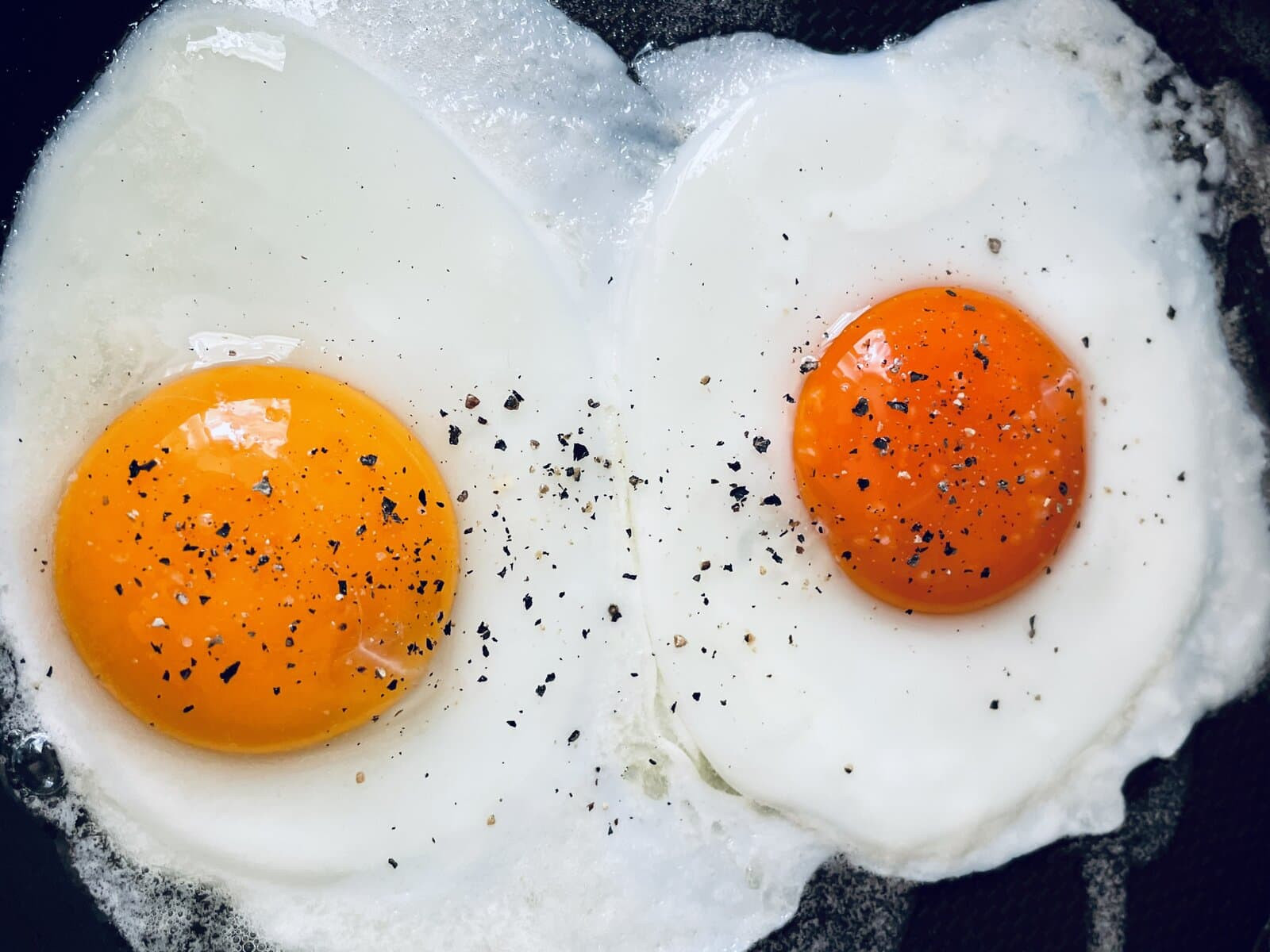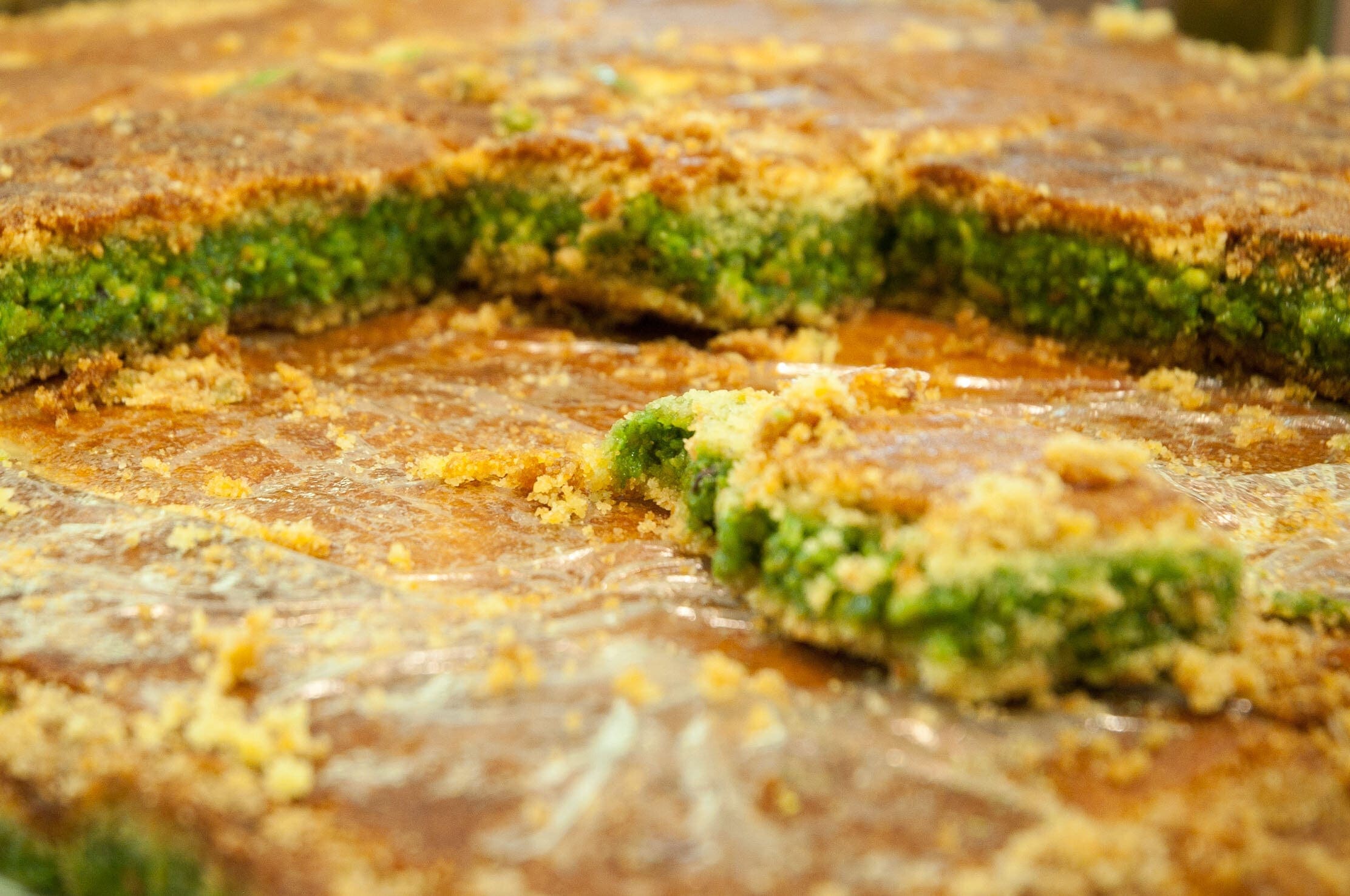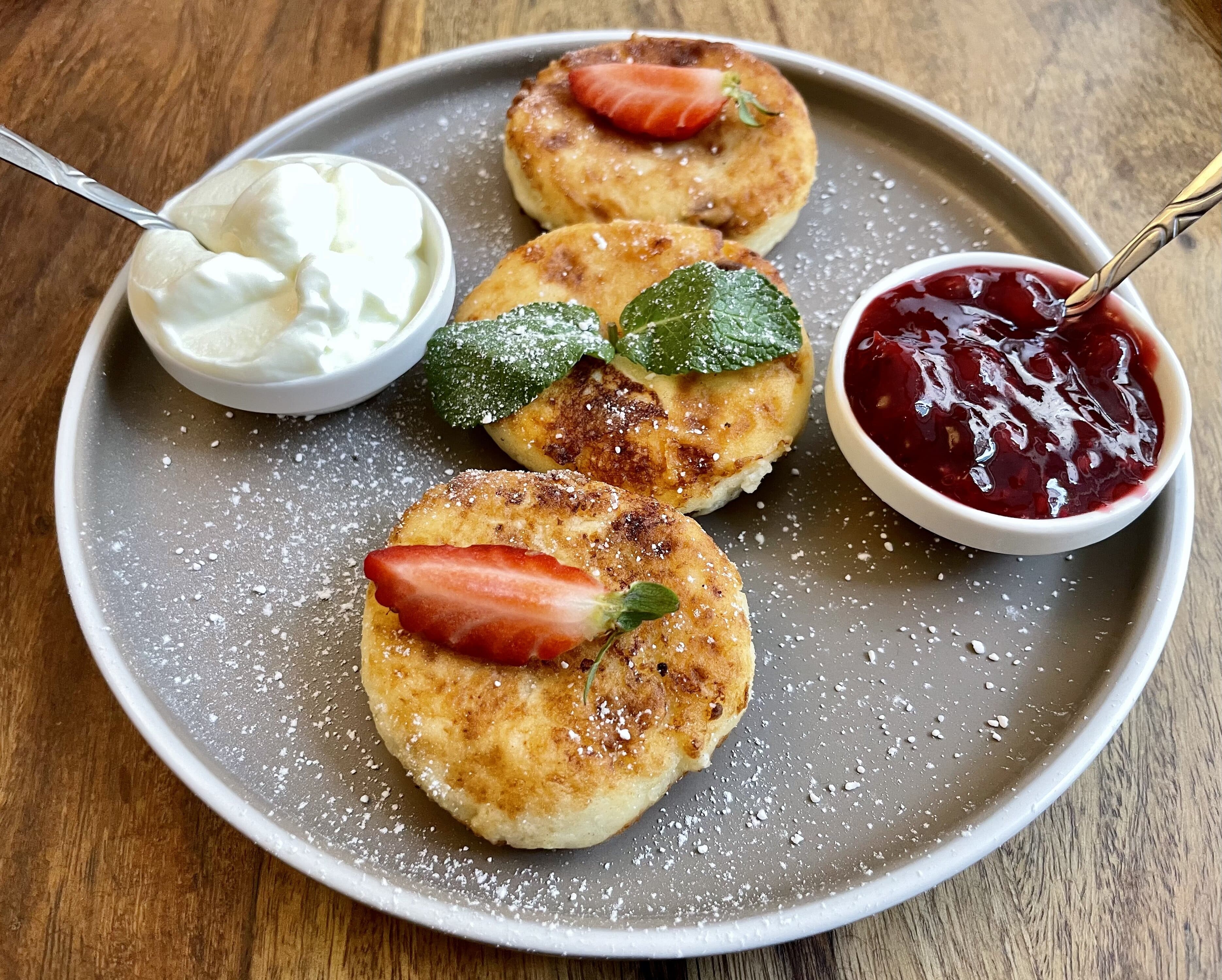Spring eggstravaganza
Anne Thomas pays homage to the humble egg, around the world and in her dreams.
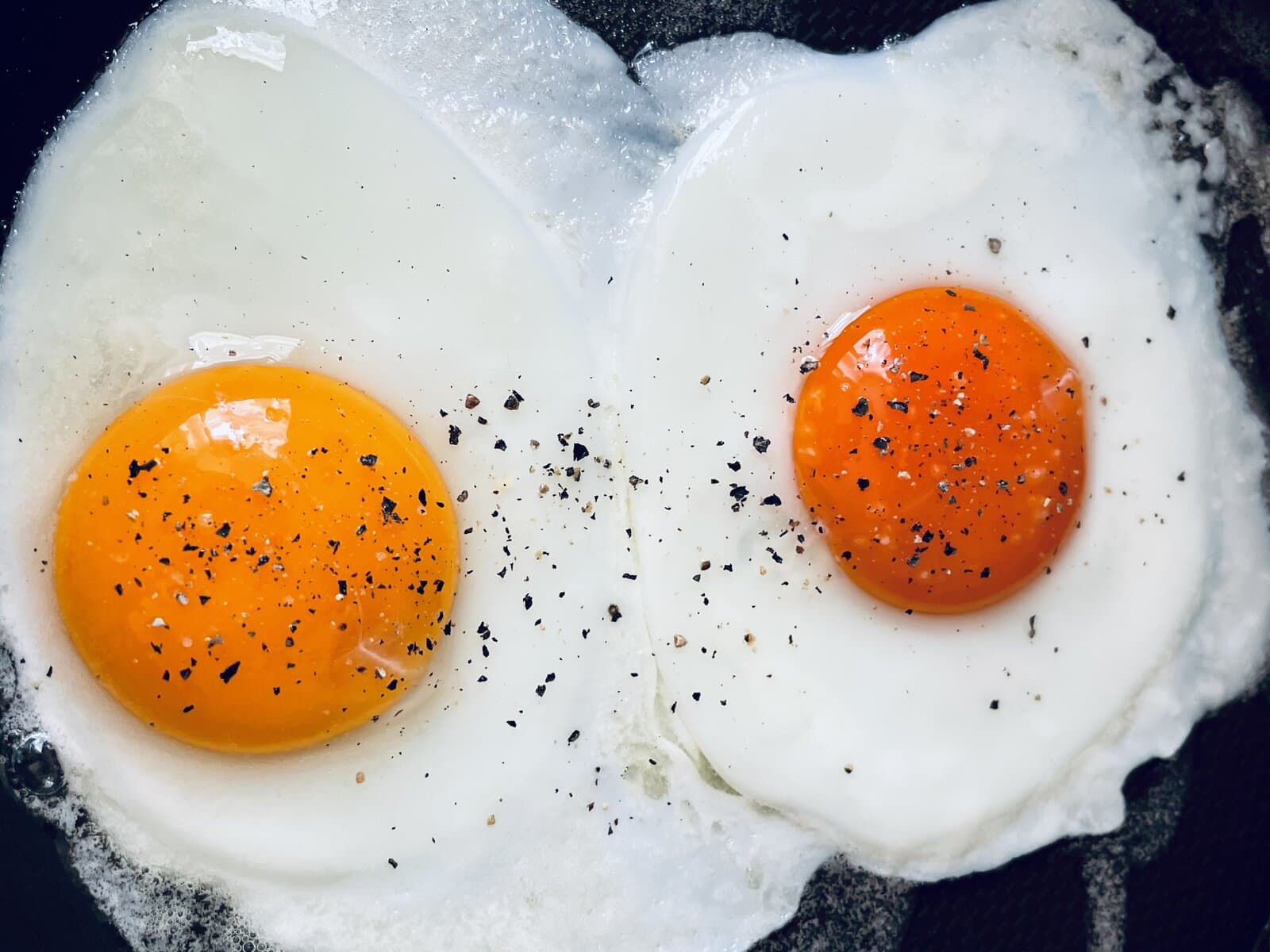
Trigger warning: This eggcentric post is written in Egglish. It’s not difficult to pick up and you'll surely hatch on fast, but be forewarned if puns and bad yolks make you run a mile like the smell of a rotten egg.
Why do the French only put one egg in an omelette?
Because one egg is always un oeuf.
It’s spring, so there is an abundance of eggs, a traditional symbol of fertility and rebirth. Many ancient civilisations, including the Egyptians, thought that the world had begun as an enormous egg. Today, Christians believe that the eggshell represents the tomb from which Christ was resurrected. For Jews, the hard-boiled egg eaten at Passover is also a symbol of mourning, with the round shape representing life of which death is a component. During Ramadan, Muslims often eat eggs before sunrise since it contains many necessary nutrients, which makes it easier to fast.
Indeed, unless you’re vegan (in which case, this positively eggan post may not be for you), an egg represents the perfect food. Apart from its health benefits, it is cheap and is widely available. There are few cuisines, in which it doesn’t play a pivotal role.
But if it didn’t taste so great, would we be so eggthusiastic? In my attempt to answer this question, surely one of the most eggsistential of our age, I will focus on the egg in its numerous edible guises from now on but this post is by no means supposed to be eggsaustive.
I will concentrate particularly on cooked eggs. Liza Minelli’s prairie oyster in Cabaret has never appealed and nor has the gogol mogol. When I lived in Russia, I would gape in horror each morning as my host brother Vanya whisked up raw eggs with sugar and downed this concoction in one gulp.
The only way you’ll get me to eat raw eggs is camouflaged in oeufs à la neige, a rich chocolate mousse or an unctuous mayonnaise.
Once cooked, however, there are very few recipes that I won’t sample (though I’ve yet to touch a pickled egg), and I would be hard pushed to decide on my favourite dish. Eggs Florentine? A truffle omelette? My friend Sonata’s anda curry in a rich gingery and garlicy tomato gravy (here’s a recipe for a surely poorer, albeit delicious-looking, alternative )? Oeufs en meurette? Akuri?
Or is it simply two fried eggs, like my French grandfather? His solution if someone didn’t seem to be relishing the meal as much as s/he should, was to issue an order to my grandmother that she cook up an egg or two. She rarely complied, retorting sharply with the French equivalent of “Go fry an egg yourself!” On the rare occasions when my grandfather did have to prepare his own meal, that’s exactly what he would do. He just about knew where to find a frying pan, in which he would melt a decent slab of butter before cracking in the eggs with great aplomb. He would gobble up his feast with the appetite of a wolf and rejoice in his achievement with a wild grin.
My grandmother was considerably more talented in the kitchen and rather more modest about her skills – any compliment about a certain dish was hushed with a quip about how easy it was to make. She eggcelled at the omelette baveuse, which she could whip up in no time, with nothing tasting better than the fried piece of baguette she used to wipe clean the bowl before lowering it into the foaming butter with the eggs. A perfectly boiled egg with mouillettes (or soldiers) was equally delicious. In France, eggs tend to be served as a simple evening meal or as a lunchtime starter, such as on Easter day of which oeufs mimosa are an essential element.
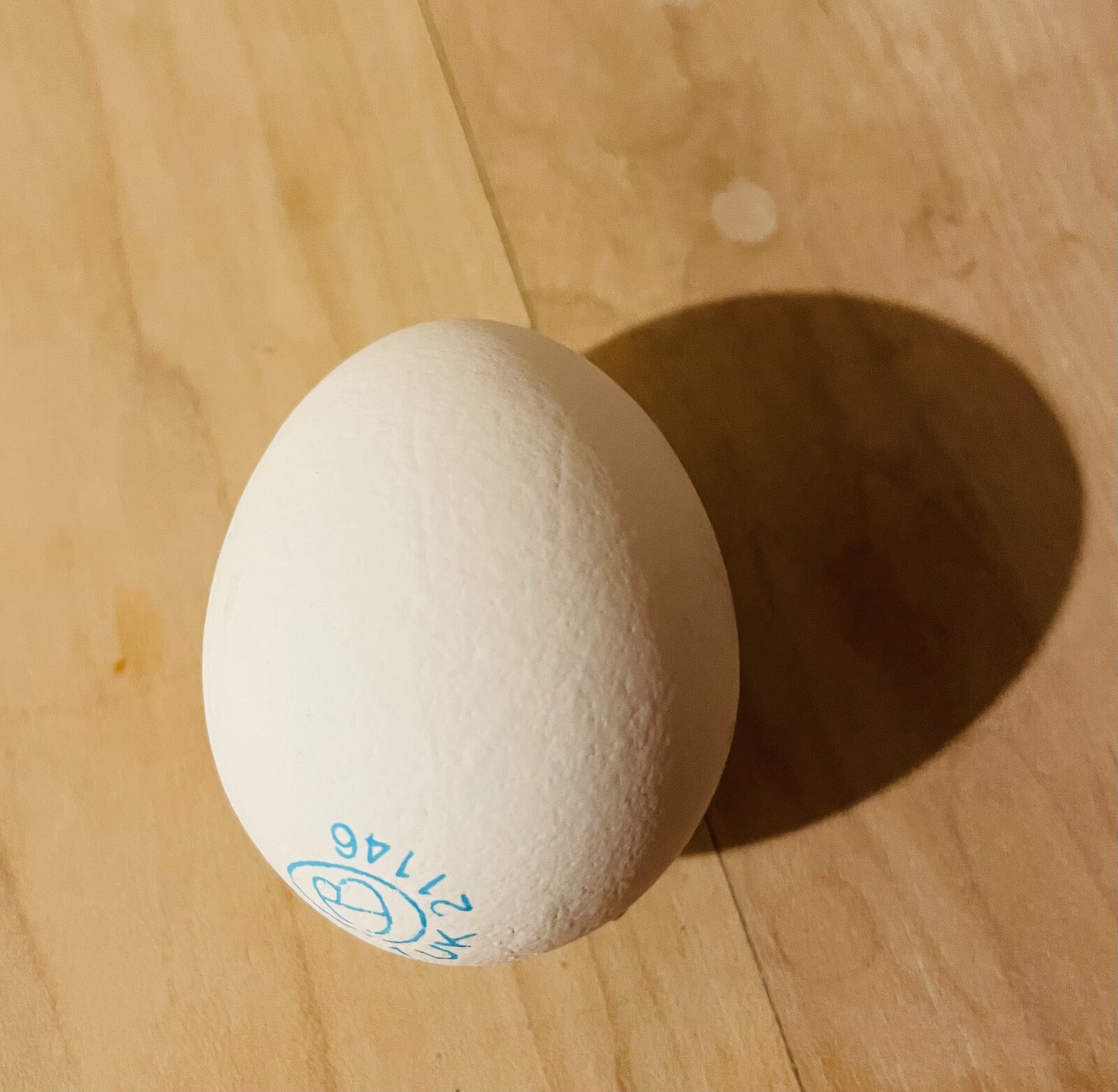
In the US, where eggs are of course a breakfast institution, my New York grandmother would greet us in the morning with the question: “Sunny side up or over easy?”
Over easy was my favourite. I loved piercing the yolk and seeing it run out onto the potato waffles or thick pancakes on the plate.
I don’t know whether my grandmother knew the Dean Martin song How d’ya like your eggs in the morning?, where eggs are rhymed with kiss and bliss, or whether she’d seen the film Rich, Young and Pretty but I am sure she would have enjoyed this scene, as might you.
At home in England, we didn’t eat eggs for breakfast. They were more often than not served the French way, for dinner in the form of an omelette or perhaps poached in a thick tomato sauce. More proof – if any were needed - that we were “foreigners”.
But eggs do tend to be eaten for breakfast in Britain, where Humpty Dumpty is part of the folklore and the famous Beatles’ song I am the Walrus celebrates the Eggman, (I doubt that Yesterday would have been such a success if Paul McCartney’s working title had remained, but here’s an earworm for you: “Scrambled eggs, oh my baby how I love your legs, not as much as I love scrambled eggs”).
Like everything else in this country, the way you eat eggs might indicate your class, but I daren’t get egg on my face by going down that route and getting it wrong. You’re welcome to draw your own conclusions.
In an ideal world, I’d go for two impeccably poached eggs, with a cup of Earl Grey tea and a view of the Cornish coast, but, like Paul, I’ll happily settle for scrambled eggs in a more realistic setting. Lately, I’ve developed a fondness for egg baps, which are more suitable to lockdown conditions. Cambridge's revered institution Fitzbillies makes an excellent one that I've taken to devouring as elegantly as possible in one of the city’s many beautiful gardens.

There is no shortage of good egg dishes in Berlin either and I have discovered two that I have yet to come across elsewhere: Senfeier and Eier im Glas.
The first is a simple dish of hard-boiled eggs in a white wine and mustard sauce served with boiled or mashed potatoes. It often looks somewhat bland, but it tastes zingy and warming. The perfect stodge on a cold evening (this is certainly not one for breakfast). The most sophisticated version I have ever had the pleasure of eating was at Tim Raue’s La Soupe Populaire. It had many more flavours and textures than the average version and held its own among more contemporary cuisine. I have since craved it so much that I recently decided to try it myself. Unfortunately, I could not find Raue’s recipe online, so I had to resort to a humbler version. I won’t link to any of the recipes I found, so unappetising do they look, but I do recommend a google-search if you’re feeling adventurous. Why not invite a few friends over for an eggsperiment?
Last year, two British friends and I made kimchi on the fateful day that Britain left the European Union. The salt of our tears added to the umami and the result was spectacular. We called it Brexit kimchi. We did not know at the time that the already devastating woes of Brexit would be compounded by those of the coronavirus pandemic. A year later, only one of us is currently in Berlin and two of us are “stuck” in Brexitland. In memory of Brexit Kimchi day, I enlisted them to trial Senfeier, as well as a German immigrant in London who did not know this iconic dish. Inspired by Felicity Cloake and her ongoing quest for the perfect recipe, we all chose a different set of instructions and after cooking in our respective kitchens met for a zoom dinner party. Without eggception, our renditions looked grim (see photo!!!) but they tasted good. Whether we had used Colman’s, Bautz’ner or Maille, the mustard gave just the right oomph to what might otherwise have been a rather bland roux-based sauce. Maybe ours weren’t really up to Tim Raue’s standards but we were eggstremely satisfied with our taste of German comfort food nonetheless.
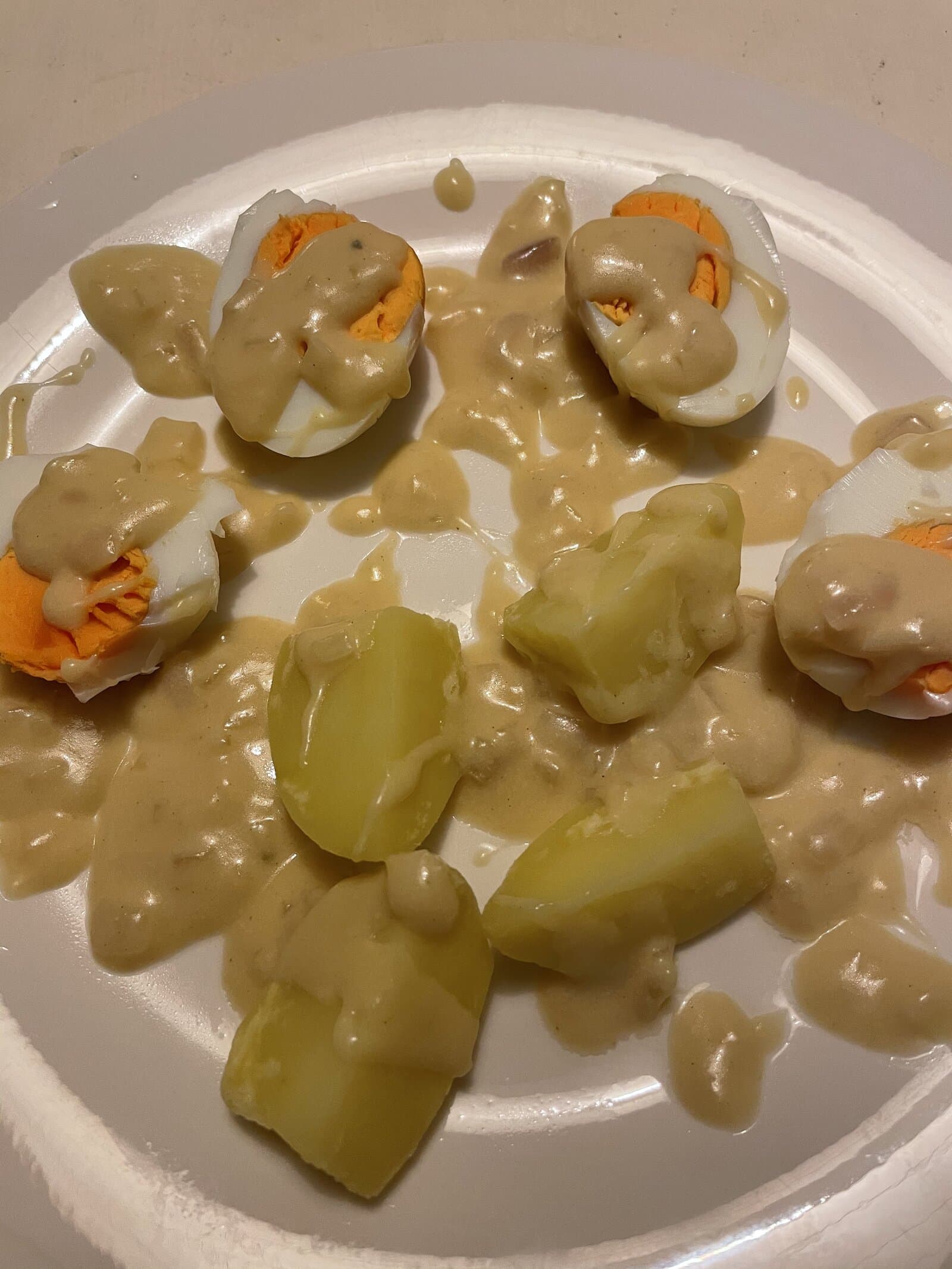
The other dish that I discovered in Berlin are Eier im Glas, which are soft-boiled eggs that are peeled and served in a glass with a knob of butter and chives. This simple dish is prepared to perfection at Goldmarie in Kreuzberg and always comes with fresh baguette. I’ve never found the energy to make Eier im Glas at home because I don’t trust myself to manage to remove the shell without burning my fingers or breaking the egg itself. That same German immigrant in London confessed that at the café she once worked she and her colleagues would often pretend it was no longer on the menu because it was such a pain to prepare and their pay simply wasn’t high enough. I don’t blame her (and she's not a bad egg) but I’m glad that nobody has stooped so low at Goldmarie! On a sunny day, sat on a deckchair in one of the city’s most charming neighbourhoods by the canal, the Eier im Glas is one of the loveliest breakfasts Berlin has on offer.
However, for a really special treat, head down the road to Le Bon, for a dish that is transformative. The avocado, lime and slow-cooked 60 minute egg open sandwich is exquisite. Get it with the marinated goat’s cheese, you won’t regret it, I promise.
If you’re ever lucky enough to get a table at the famously overcrowded Neukölln institution that is Roamers, you can rest assured that any of the egg dishes will blow your mind, but I recommend the huevos rancheros in particular.
The same goes for Kreuzberg’s Mugrabi, which also has a wonderful shakshuka as well as sabich and its signature breakfast of poached eggs with roast potatoes and wilted spinach topped with a light tahini sauce is simply divine.
At this point, I would like to launch an appeal for Two and Two to bring back their fantastic oeufs en cocotte, which the pandemic forced from the menu. I look forward to their return.
On the other side of town in Charlottenburg, Benedict is all about breakfast and there are eggs in every iteration. They're pretty good, but I’ve yet to eat something there as eggstraordinary as the poached eggs in yoghurt dish that I enjoyed at the original branch in Tel Aviv on a balmy day oh so many years ago when travel was possible.
And there I go again, dreaming of travel and far-flung places. I don’t know where I will go first when travel is once again possible without risk. I think it may be a toss between New York, in which case I will head straight for Rezdora to taste this egg yolk raviolo in a truffle sauce, which must surely be the most mouth-wateringly delicious egg dish ever, and Bologna, in which case I'll make a beeline for San Domenico where it was invented.
Meanwhile, I will try making it myself. If I can pull it off, I will be eggstatic. If you succeed, legg me know.
It’s ok, I hear you shouting “enough, already!!”
Un oeuf? But why not two?
Oh, all right. That’s all yolks!
Hasta l’huevo, companero!!!
Disclaimer: Since I am unable to keep abreast of the ever-changing pandemic-related regulations regarding the hospitality industry in various parts of the world, I cannot guarantee that any of the places I talk about are still serving the dishes I mention, or indeed that they are still in business. But hope springs eggternal!

